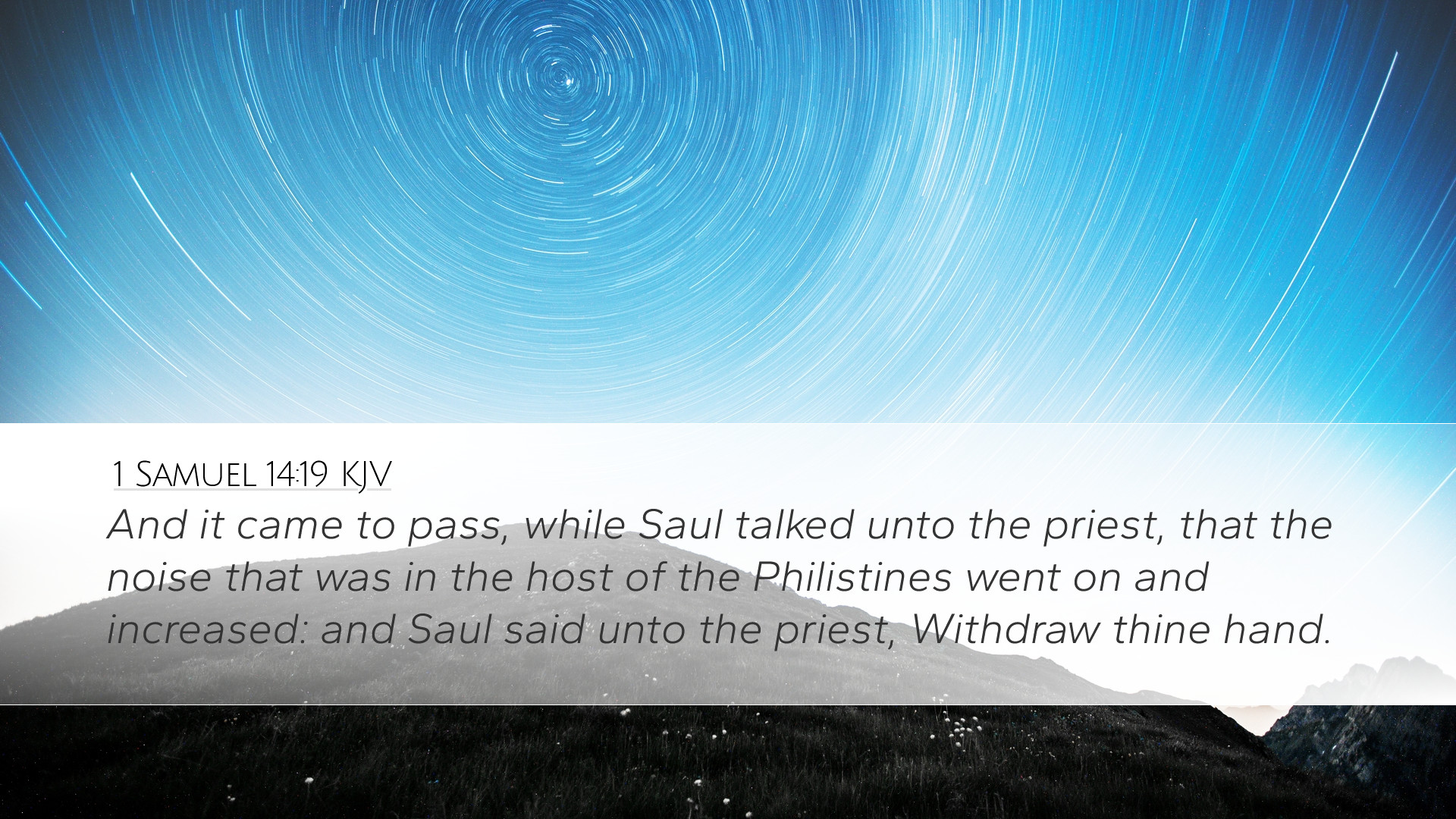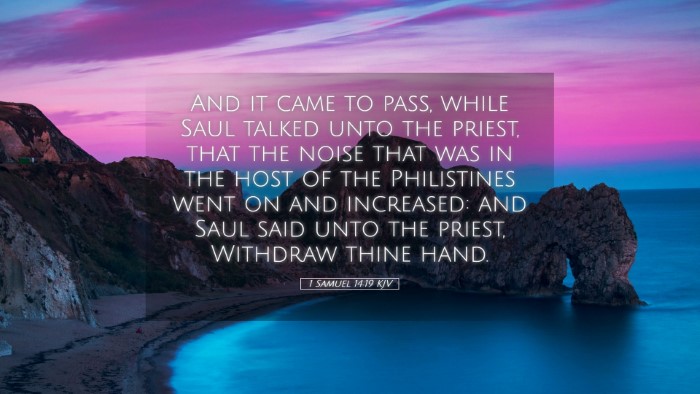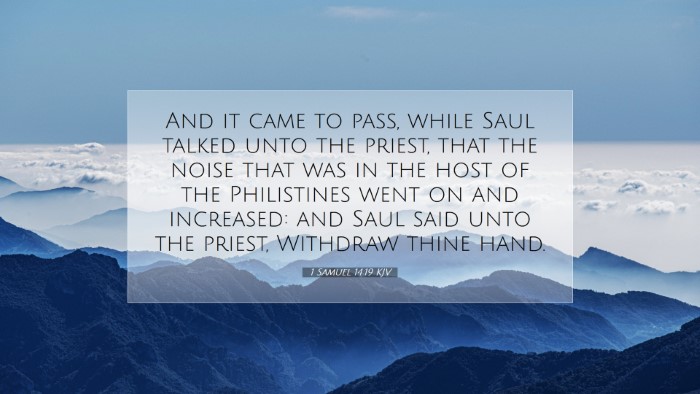Bible Commentary on 1 Samuel 14:19
1 Samuel 14:19 states:
"And it came to pass, while Saul talked unto the priest, that the noise that was in the host of the Philistines went on and increased: and Saul said unto the priest, Withdraw thine hand."
This verse captures a moment of tension in the narrative of Israel's conflict with the Philistines. It provides insight into Saul’s leadership, the urgency of the military situation, and the influence of divine guidance. The following commentary synthesizes insights from historical theologians such as Matthew Henry, Albert Barnes, and Adam Clarke.
Contextual Background
The events surrounding this verse take place during a critical juncture in Israel's history, where king Saul is leading the Israelite forces against a mighty Philistine army. This period is marked by struggle and a desire for deliverance from oppression.
Commentary Insights
Saul's Leadership and Urgency
Matthew Henry highlights Saul's indecisiveness and the implications of his reliance on priestly counsel in a military context. Saul's interactions with the priest reveal his struggle for guidance amidst a chaotic battle. The phrase "Withdraw thine hand" signifies his abrupt decision to discontinue seeking further divine guidance at a moment of heightened anxiety.
This moment encapsulates a broader theme in Saul's reign—his inability to maintain steady faith under duress. Albert Barnes comments that Saul’s compulsive action illustrates a king more focused on immediate results rather than seeking profound spiritual insight and wisdom.
"Fear often drives leaders to act impulsively, and in this moment, Saul exemplifies that truth."
The Role of the Priest
The presence of the priest during a military operation emphasizes the integration of spiritual and civic leadership in Israelite culture. Adam Clarke notes the significance of this role, suggesting that Saul’s initial consultations were indicative of the theocratic nature of Israel's governance. His reliance on the priest signifies an acknowledgment of God’s sovereignty in battles.
However, as the Philistine noise escalates, there is a clear tension between waiting on God and the urgency of human circumstances. Barnes posits that this transition represents Saul's shift from a dependence on divine instruction to a reactionary approach driven by panic.
Divine Intervention Silent in Chaos
Matthew Henry alludes to the possibly unseen workings of God during this tumultuous occasion. The noise from the Philistine camp could signify divine intervention causing confusion among the enemy ranks, which was taking place while Saul hesitated in his consultation with God. Henry explains:
"Though Saul appeared to be in a panic, it was perhaps the Lord orchestrating events behind the scenes."
This perspective encourages scholars and theologians to reflect on the nature of divine intervention, especially in moments of human confusion. It speaks to the often-unseen hand of God, working concurrently with human decision-making, whether they are obedient or disobedient.
Applications for Today
The passage brings forth several applications for contemporary readers:
- Conducting Spiritual Leadership: Leaders today should integrate prayer and divine guidance into their decision-making processes, particularly in times of crisis.
- Awareness of Divine Timing: There is a distinction between awaiting God's direction and succumbing to the pressures of immediate circumstances.
- Evaluating Leadership Responses: This text serves as an insightful example of how fear can divert leaders from faithful pursuits to hasty decisions.
Theological Reflections
Theologically, 1 Samuel 14:19 resonates with the concept of theocracy, where God's voice is paramount in leadership decisions. Adam Clarke posits that this account exemplifies the struggles of a leader who seeks divine favor but is swayed by human fear and noise.
From a practical standpoint, the passage underscores a pattern that remains relevant: the tension between faith and fear. It invites pastors and theologians to consider how they can cultivate a leadership style that prioritizes divine wisdom, especially in tumultuous times.
Conclusion
In summary, the insights gleaned from 1 Samuel 14:19 through the commentaries of Henry, Barnes, and Clarke provide a rich framework for understanding the complexities of leadership under pressure. This verse challenges leaders to balance the demands of their role with an unwavering commitment to seeking God’s guidance. The narrative serves as a poignant reminder of the unseen workings of God amidst chaos and the necessity of steadfast faith in navigating life’s tumultuous circumstances.


